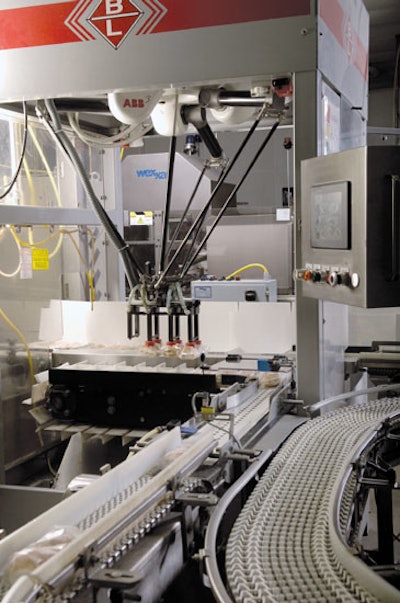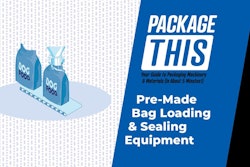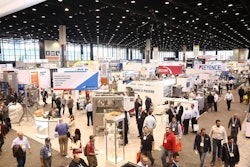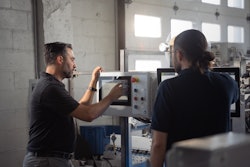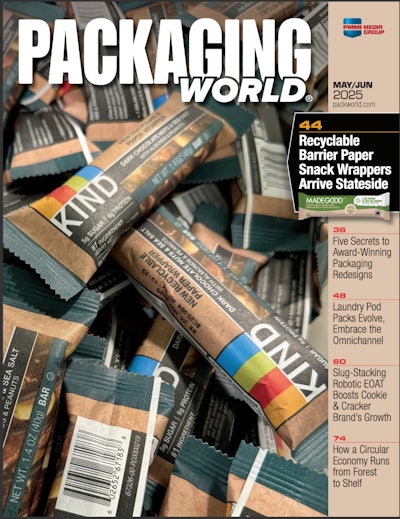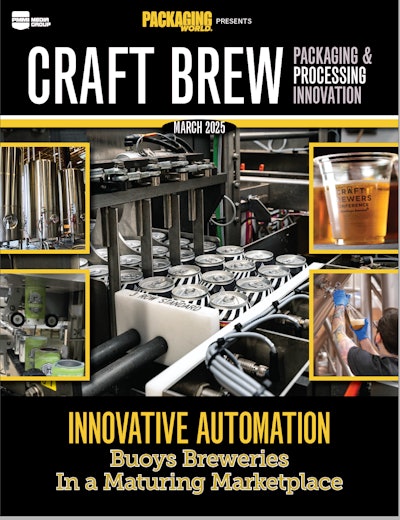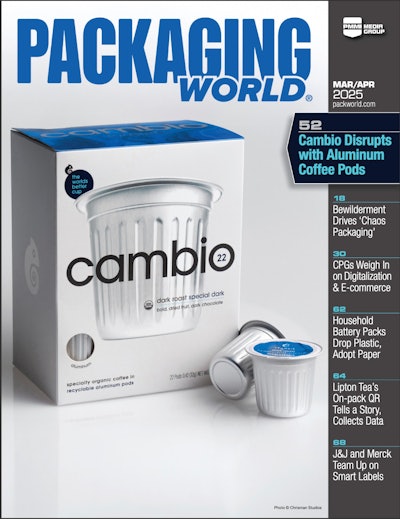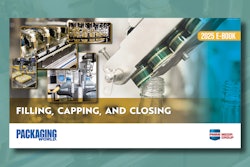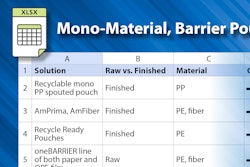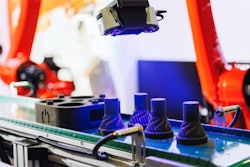White Castle’s frozen food plant in Louisville, KY, manufactures and packages the company’s famous square-shaped, steam-grilled Slyder burgers for frozen shipment to retail grocery stores and club stores throughout the United States. The Louisville facility is operating near capacity to produce these popular, ready-to heat-and-eat burgers to fulfill consumer demand.
The packaging area of the 62,000-sq’ plant had been the most labor-intensive workstation, with about 24 employees staffed to fulfill orders by selecting the pillow-packed burgers from the line and packing each carton by hand. In the early 1990s, as the number of orders increased to meet demand, White Castle turned to focused improvement programs to increase efficiencies and to lower labor-related costs.
Robots to the rescue
In the autumn of 2003, Tony McGraw, plant manager for White Castle Distributing LLC in Louisville, and his associates attended the Pack Expo trade show in search of the latest packaging technologies. There they met representatives from ABB Robotics, a leading supplier of industrial robots. The ABB team suggested that the Model IRB 340 FlexPicker™ robot with vacuum-cup pickup (right) could help White Castle address its burger carton-packing challenges.
Specifically designed to move products quickly and precisely, the FlexPicker robots feature high-speed flexibility that allows for handling more than 150 objects/min. In addition, the FlexPicker mounts above the existing conveyor belt, minimizing floor-space clutter. The flat-top plastic conveyor belting is supplied by Span Tech LLC.
The first two FlexPickers were installed at the Louisville facility in November 2004. Packaging machine integrator Bradman-Lake, Inc. assisted in the installation, training, and start-up of the pickers. Each of the two ABB robots was programmed to package either six burgers or 16 burgers per carton.
The polypropylene film for the burger pillow-packs is supplied by Interstate Plastics and is formed, filled, and sealed on a Pioneer 4-axis servo-driven horizontal f/f/s machine from Campbell Wrapper Corp. (902/983-7100). The preprinted chipboard cartons are supplied by Altivity Packaging. After the burgers are cartoned, they are case-packed and palletized using equipment from Fanuc Robotics.
McGraw notes that since the robots arrived, “Our packaging speeds have remained fairly constant—about 14,200 burgers per hour. And the quality of the packs has remained consistent. But we have been able to reduce our packaging labor requirements by two-thirds—from 24 to eight workers per line—through attrition. The robots have afforded packaging workers more time to focus on other responsibilities and avoid repetitive-motion issues.”
Currently, the Louisville plant operates two automated production lines. An additional automation component on Line One is a an automatic case erector, model WF-2T, from Wexxar. “We selected it due to the wide range of shipper sizes it can handle,” says McGraw. Cases from both lines are conveyed to a robotic
palletizer all supplied by Flexicell. It features a model 420i robot from Fanuc.
Happy with the performance of the packing robots, McGraw says, “We’ve had very few problems maintaining and operating this equipment.”
